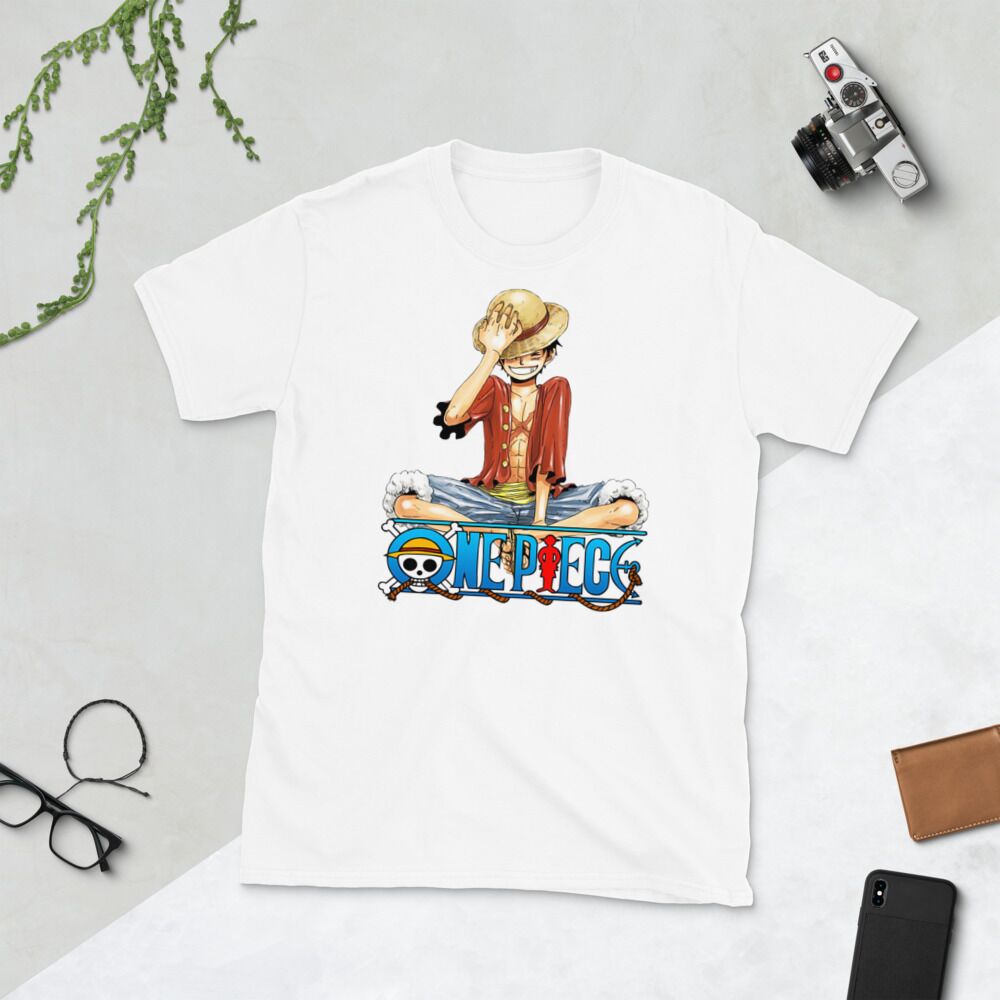Fashion, as an art form and a cultural phenomenon, One Piece Manga T-Shirt transcends mere clothing. It embodies creativity, reflects societal values, and serves as a canvas for self-expression. From haute couture runways to street fashion, its influence permeates every corner of our lives.
Evolution of Fashion Trends
Fashion trends are not just seasonal whims but a reflection of our times. They evolve continuously, influenced by a myriad of factors including cultural movements, economic shifts, technological advancements, and even global events. What was fashionable a decade ago might seem outdated today, yet many trends experience cyclical revivals, blending nostalgia with modern interpretations.
Historical Influences: Throughout history, fashion has mirrored societal norms and aspirations. The opulent attire of royalty in medieval Europe contrasted sharply with the practical garments of peasants. The 1920s brought forth the liberating spirit of the flapper dress, symbolizing newfound freedoms for women post-World War I. Each era has left its imprint, shaping the styles we admire and emulate today.
Globalization and Diversity: In the contemporary era, globalization has transformed fashion into a global dialogue. Designers draw inspiration from diverse cultures, leading to fusion styles that defy traditional boundaries. This cultural exchange not only enriches fashion but also fosters greater understanding and appreciation of different traditions worldwide.
The Influence of Fashion Icons and Brands
Fashion icons and brands play a pivotal role in shaping trends and setting standards of style. From Coco Chanel’s timeless elegance to the disruptive streetwear aesthetics of brands like Supreme and Off-White, these influencers drive the industry forward.
Celebrity Culture: Celebrities wield immense influence over fashion trends. Red carpet appearances and social media posts catapult outfits into the spotlight, instantly making them covetable items. Collaborations between celebrities and designers have become commonplace, blurring the lines between fame and fashion.
Sustainability and Ethical Fashion: With increasing awareness of environmental issues, the fashion industry faces pressure to embrace sustainability. Ethical fashion practices, such as using eco-friendly materials and ensuring fair labor practices, are becoming defining criteria for conscientious consumers and brands alike.
Fashion as a Cultural Mirror
Fashion serves as a mirror reflecting societal attitudes, beliefs, and movements. It transcends aesthetics to convey messages of identity, rebellion, and solidarity.
Subcultures and Movements: From punk to hip-hop, subcultures have consistently challenged mainstream fashion norms, spawning unique styles that resonate beyond their origins. These movements often carry powerful social and political messages, using clothing as a form of protest and assertion of identity.
Gender Fluidity and Inclusivity: Modern fashion increasingly embraces diversity and inclusivity, challenging traditional notions of gender and beauty. Gender-neutral clothing lines and models breaking stereotypes highlight a shift towards a more inclusive and accepting industry.
The Future of Fashion: Innovation and Adaptation
Looking ahead, the future of fashion promises continued innovation and adaptation to changing global dynamics. Technology, sustainability, and inclusivity will likely drive the next wave of trends and practices.
Technology and Digitalization: Virtual fashion shows, augmented reality dressing rooms, and AI-driven trend forecasting are reshaping how we experience and consume fashion. Digital platforms democratize access to fashion, empowering consumers to participate in trends and express their individuality.
Circular Economy: The rise of circular fashion models emphasizes longevity and recycling of garments, reducing waste and environmental impact. Renting, swapping, and upcycling clothes are gaining traction as viable alternatives to traditional consumption patterns.
In conclusion, fashion remains an ever-evolving tapestry woven with threads of creativity, culture, and commerce. It reflects our collective aspirations and challenges, while continuously reinventing itself for new generations. As we navigate the complexities of a globalized world, fashion stands not just as an industry but as a vibrant expression of human ingenuity and identity.
Fashion, in its essence, is more than what we wear—it is a statement, a story, and a celebration of our evolving society.

